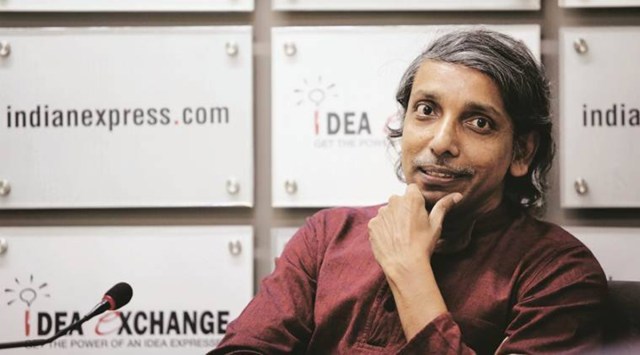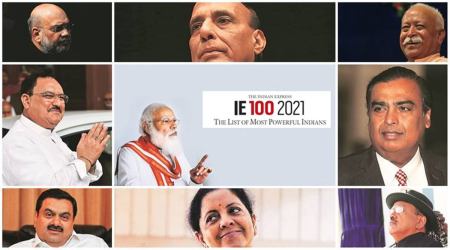Our interventions are in public interest: UGC chief M Jagadesh Kumar
I don’t want to comment on other regulators. As for UGC, I can say we only want to encourage universities to become the best of their kind. Our interventions are only in the public interest.
 UGC chief M Jagadesh Kumar
UGC chief M Jagadesh Kumar Private Institutions of Eminence (IOEs), like all universities, have a social responsibility and should not perceive UGC’s reminders to fulfil that responsibility as “interference,” UGC Chairman M Jagadesh Kumar told The Indian Express in an interview. Excerpts from an interview on complaints by private universities and the UGC role.
Private IOEs have been struggling with autonomy. They currently have freedom from only one (UGC) regulator. Doesn’t this make it difficult for the IOEs to achieve their goals?
I don’t want to comment on other regulators. As for UGC, I can say we only want to encourage universities to become the best of their kind. Our interventions are only in the public interest.
Even though the IOEs have freedom to decide on the admission process and tuition fee they had to comply with the UGC directive to refund fee for all students who withdrew admission up to December 31.
If students have a grievance, then UGC has a responsibility to look into it. There are several students who come from socio-economically weak backgrounds. Is it not our responsibility to help them? Should UGC not protect their interests? Universities also have a social responsibility. I am happy to tell you that the majority of the universities responded to our call and have cumulatively refunded fees that run into crores.
Private IOEs say this led to several seats falling vacant which can’t be filled…
We now have a multiple entry and multiple exit system through which, if universities want, can admit students in second year.
What about the UGC guidelines for setting up R&D cells and the tussle with the private IOEs to rename their existing research cells?
The idea of the guidelines to set up research and development cells in universities is to improve the research ecosystem. We don’t have a problem if the universities and IOEs already have an R&D cell but by a different name.
Should the UGC write to the IOEs on matters explicitly exempt under the IOE regulations?
UGC sends advisories and reminders. Let me give you an example. Say we send an advisory to all universities to adopt the Academic Bank of Credits (digital storehouse for a student’s credits throughout her academic journey). The ABC will give students more mobility and is beneficial to them. If an IOE has already adopted this, they can write a letter to us saying they have…universities have a social responsibility and have to maximise social benefits to students. That’s why we send them reminders.
But the IOEs have already demonstrated their potential for excellence. Do they need such reminders?
Nobody can say I am ideal and I don’t need to change or learn further…Just because I am a top university doesn’t mean I don’t have more ground to cover. As a regulator, it’s UGC’s job to help universities become the best of their kind. I don’t see why our effort in this direction should be misconstrued as interference.
The Empowered Expert Committee has been defunct for two years. Only 12 of the 20 institutions selected for IOE status have been officially notified.
The UGC has no role in the formation of the new Empowered Expert Committee. Notification of the IOEs is not within UGC’s purview.




































